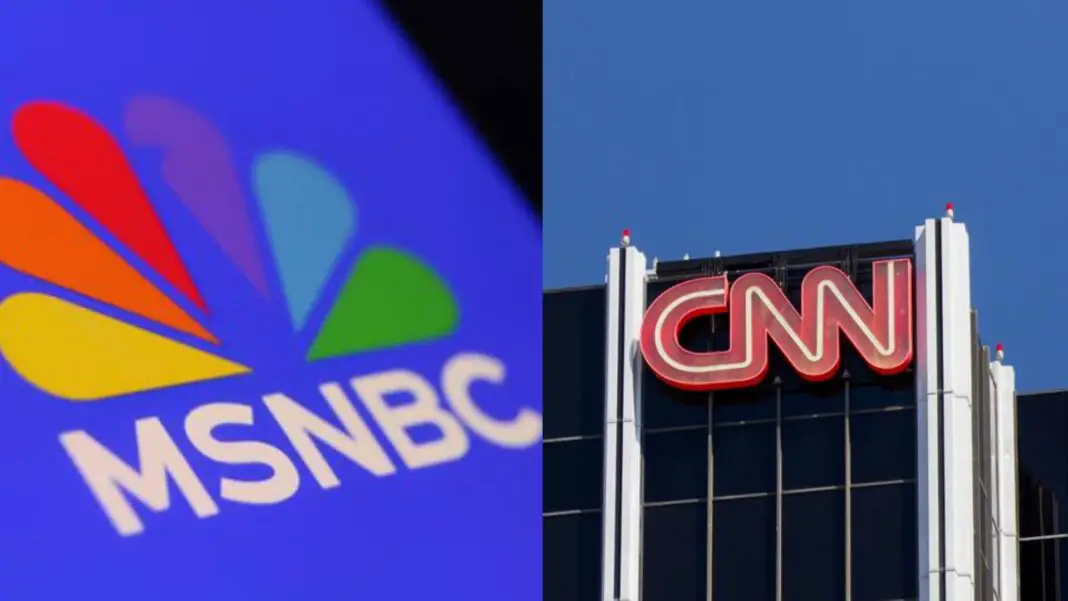Former MSNBC host Joy Reid sparked intense debate during a Tuesday, June 24, appearance on CNN’s “Newsnight” when she defended Iran following President Donald Trump’s weekend strikes on the country’s nuclear facilities. Reid clashed with multiple panelists over her controversial stance regarding Iran’s nuclear ambitions and human rights record.
The heated exchange began when CNN contributor Brad Todd confronted Reid about Iran-backed militia attacks on U.S. forces. Todd noted that Iran-backed militias had attacked United States forces 170 times in Syria, Jordan, and Iraq, referencing former President Joe Biden’s previous authorization of F-15 strikes against Iran.
Reid dismissed Biden as a moral authority, citing his support for Israel’s actions in Gaza. She argued that Iran’s pursuit of nuclear weapons was a defensive response to regional threats.
The former MSNBC host questioned why the United States maintained the authority to determine which countries could develop nuclear energy. She criticized what she characterized as Western arrogance in making such determinations and suggested that Iran’s nuclear ambitions were driven by threats from an “expansionist power” in their region.
Reid further argued that Israel’s possession of nuclear weapons, which are not subject to International Atomic Energy Agency oversight, contributed to regional instability. She questioned whether any nation in the Middle East should possess nuclear weapons, expressing particular concern about Israel’s nuclear program.
CNN host Abby Phillip interrupted Reid’s defense, emphasizing that the issue extended beyond nuclear weapons. Phillip highlighted Iran’s role as a state sponsor of terrorism, noting the country’s involvement in promoting “chaos and violence and death around the world.”
Attorney Arthur Aidala challenged Reid’s position more directly, criticizing her support for a nation that executes homosexuals and kills individuals based on religious beliefs. Aidala expressed disbelief at Reid’s defense of Iran’s human rights record.
Reid responded by drawing comparisons between Iran and the United States regarding LGBTQ rights. She pointed out that LGBTQ individuals could not serve in the U.S. military under Trump’s presidency and faced persecution in American society. Reid argued that gay people faced restrictions in having their stories told in schools and that the United States was not a beacon of rights for gay people.
Aidala pushed back forcefully, noting that while LGBTQ individuals faced restrictions, they were “not killing them” in the United States. He criticized Reid for comparing American policies to Iran’s execution of gay individuals, highlighting the stark difference between policy restrictions and state-sanctioned murder.
The debate occurred following Trump’s bunker buster bombing campaign against Iran’s nuclear facilities last weekend. U.S. stealth bombers reportedly dropped 12 deep penetrator bombs on the Fordo nuclear facility and two on the Natanz site. Defense Secretary Pete Hegseth later described the attack as historically successful, though intelligence reports suggested Iran’s nuclear program was only set back by a few months.
Reid’s appearance on CNN comes after her MSNBC show was canceled earlier this year. During a Tuesday podcast appearance on “The Breakfast Club,” she speculated that her coverage of Gaza and repeated criticism of Trump contributed to her firing from the network.
The former MSNBC host also expressed disillusionment with the Democratic Party during the podcast, stating she was “barely hanging on” as a party member. Reid criticized Democratic leadership for failing to provide effective opposition to Trump’s agenda and suggested the party needed complete restructuring and fresh ideology.
Reid’s controversial comments echo similar statements made by “The View” co-host Whoopi Goldberg last week. Goldberg suggested that living in the United States in 2025 was equivalent to living in Iran, particularly for Black Americans. Co-host Alyssa Farah Griffin challenged Goldberg’s comparison, noting significant differences between the two countries, though Goldberg maintained her position.
The heated CNN panel discussion highlighted ongoing tensions regarding U.S. foreign policy in the Middle East and domestic debates over human rights comparisons between America and authoritarian regimes. Reid’s defense of Iran’s nuclear ambitions and her comparisons between American and Iranian treatment of LGBTQ individuals generated significant controversy and pushback from fellow panelists.











